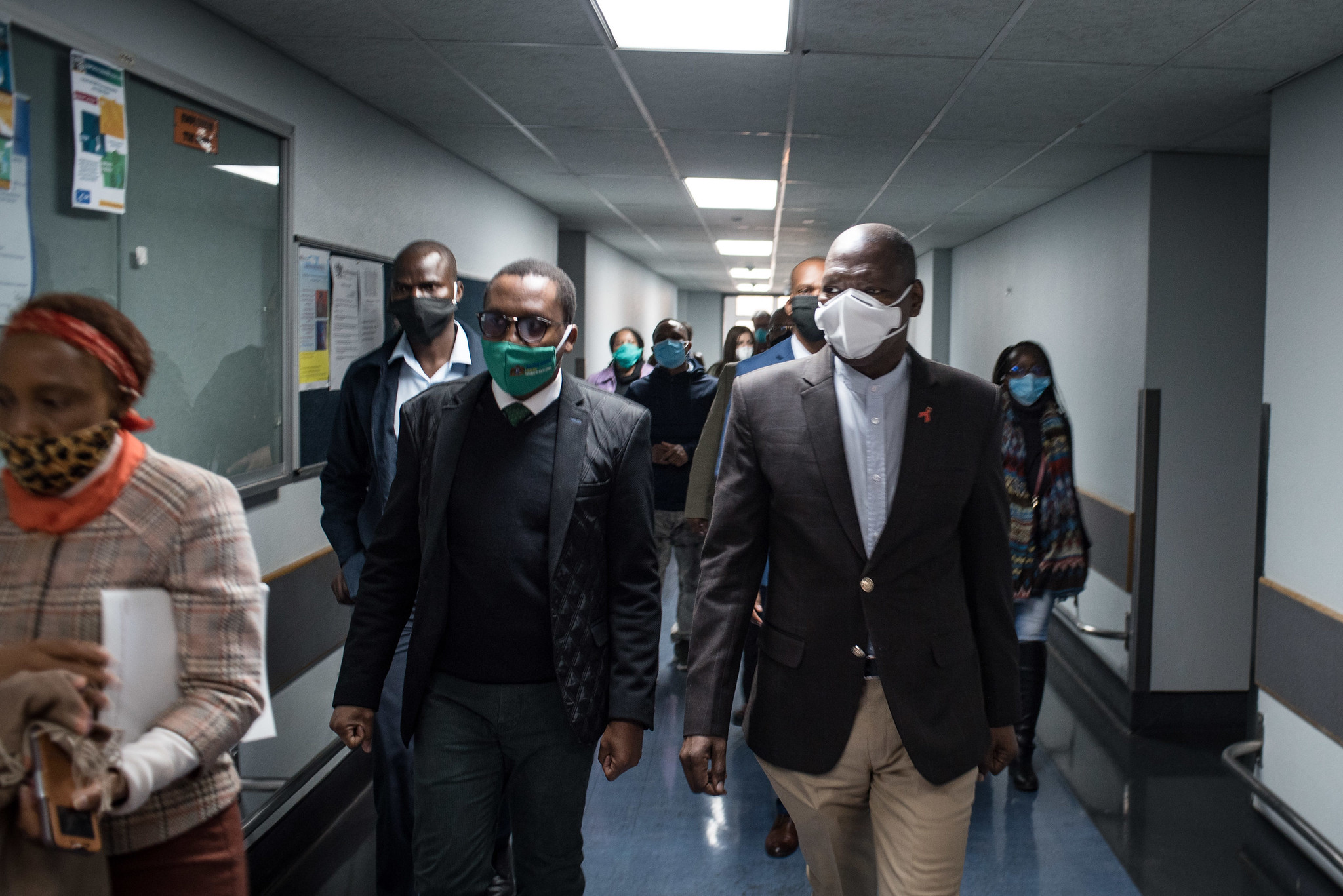He stressed that 'continuous isolation and quarantine of infected people remains our biggest weapon in containing the spread of the pandemic'.

Minister of Health Dr Zweli Mkhize during a visit at Tshwane District Hospital in Pretoria, 10 July 2020. Picture: Jacques Nelles
Health Minister Zweli Mkhize has given his thoughts on the new lockdown regulations introduced on Sunday, saying that personal behavioural patterns need to change to “stem the tide of the pandemic”.
At a briefing on Monday as part of government’s social cluster, the minister added that while the country has not reached ICU bed capacity, there is a blockage in triage centres.
“As health, we have come to give clarity on the president’s announcements last night. We monitor the movement of the infection every day, we hold special meetings and consult the different departments in between,” he said.
“There are 52 districts which can be regarded as hotspots. Covid-19 is spreading and we are losing our loved ones, and our family and friends are being infected. It is important for everyone to change their behaviour and take responsibility, and stem the tide of the pandemic.”
Mkhize says his department has engaged with Transport Minister Fikile Mbalula regarding public movement. He says while the initial lockdown had assisted in slowing down the spread, government was aware that there needed to be a balance and for people to learn to coexist with the virus.
OPINION & ANALYSIS: I’m so over this hangover, Cyril
“Taxis transport about 16 million people daily. We had to look at the best way of getting our people back to work. Studies in China show close proximity and air filters enhance the spread of the virus. What we also discovered is the importance of ventilation in confined spaces.
“Ideally people should not be close to one another in a taxi. We saw the need for mitigating steps, hence for long distance, the 70% capacity. When it is 100% there are specific guidelines to follow,” he said.
“Drivers and conductors must conduct a daily symptom check before going into the taxi. Also, drivers must at all times wear masks and sanitise at all times.
“Once outside the taxi, drivers and conductors must practice social distancing.
“Windows should be opened and this must be sufficient to allow the movement of air so that any air droplets inside are able to move out of the car. The window does not have to be fully open.”
Addressing the new alcohol ban, Mkhize said that government is concerned “that the consumption of alcohol in the country is pretty high”.
He says a lot of people have welcomed and supported the alcohol ban.
“In level 4, a study has revealed that there was a 60% increase in trauma admissions, which was attributed to the ban on the sale of alcohol. Health workers have revealed pressures these cases have on the health facility system.
“The data behind the alcohol ban shows that there was a significant reduction in alcohol-related trauma cases at our hospitals. However, the number of cases increased significantly when the ban was eased,” he added.
On the curfew between 9pm and 4am, Mkhize said “economic activity has been opened to save our people from unemployment”.
“A lot of activities take place after hours and outside of the workplace. The curfew was announced to limit the number of people who get infected. We can have the surge at a lower level by taking these steps.
“We expect that numbers will surge but severity will depend on behaviour. The surge is coming at a lower level than initially expected and this is down to government’s response during alert level 4 and 5 of the lockdown,” he added.
“We must embrace people who have tested positive for Covid-19, and offer them support. We have to stress that continuous isolation and quarantine of infected people remains our biggest weapon in containing the spread of the pandemic.
“We will later in the week announce the changes in quarantine days.
“The national emergency intervention team is looking at increasing the number of [hospital] beds. We are confident we can provide enough beds before the surge,” Mkhize concluded.
(Compiled by Carina Koen)
For more news your way, download The Citizen’s app for iOS and Android.
Download our app